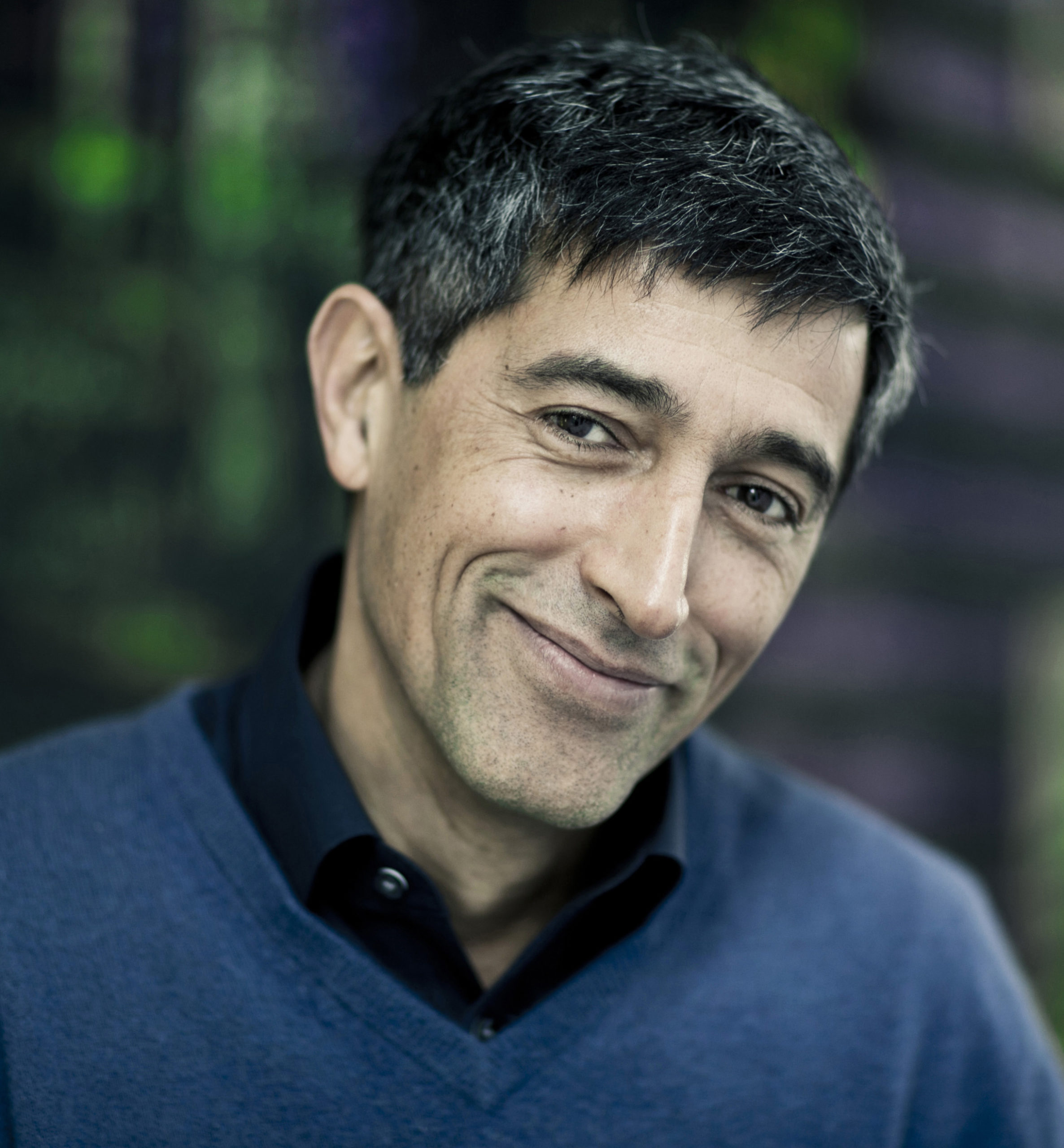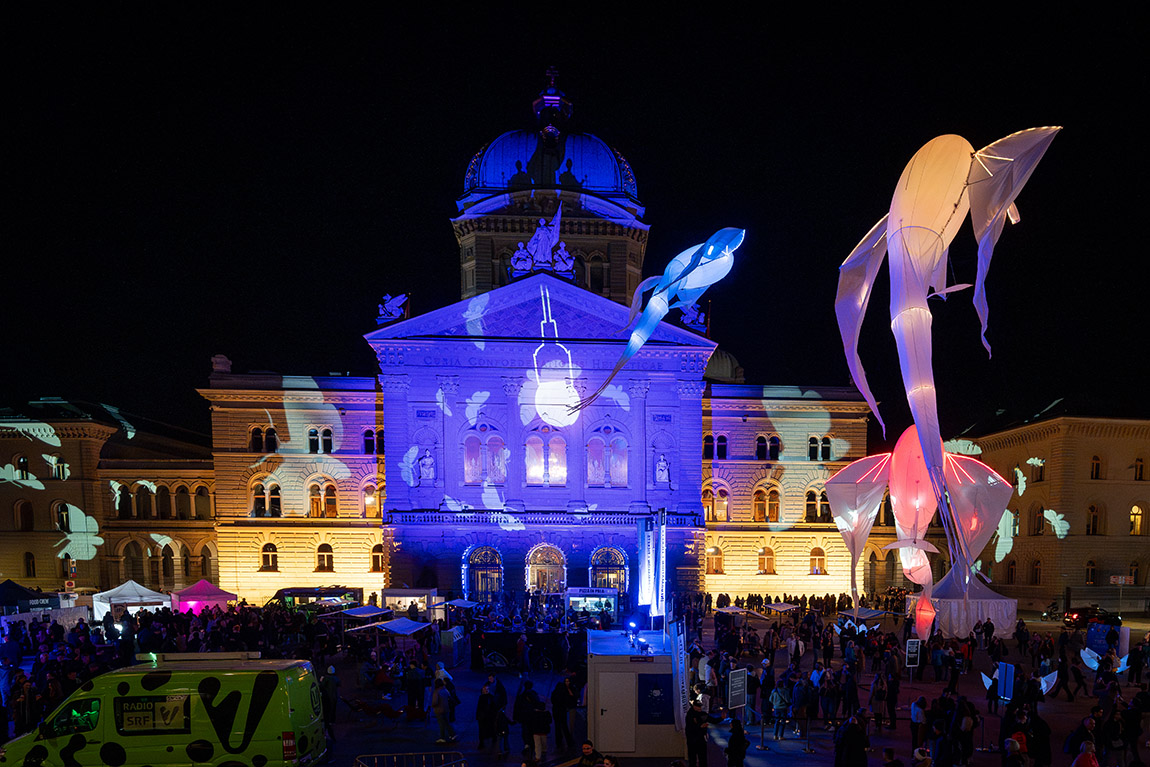Ranga Yogeshwar – Germany’s most inquisitive

He is one of Germany’s leading science journalists. Once a week, for more than 20 years, Ranga Yogeshwar has moderated the popular television show Quarks & Co. In addition, he has written books, followed his passion for astrophysics and over the years has been involved in various social issues. Discover Germany spoke to Yogeshwar about all of the above and much more.
Ranga Yogeshwar is a very busy man. When we meet he is speaking on the phone with great attentiveness. He has already been interviewed by a Japanese journalist about his documentations on the nuclear catastrophe in Fukushima. There is a computer running in the background and piles of books are on the table. It is still morning but Yogeshwar is obviously in the midst of things, seemingly juggling a number of thoughts at once. Later, when asked about his longstanding interest in astrophysics, he says: “When I can make the time I would love to go and watch the Mercury transit today.”
Yogeshwar was born in Luxembourg in 1959. While his mother was a Luxembourgian artist, his father, an engineer, was born in India. In his childhood he experienced a multicultural world, spending his earliest days in India, before finishing school back in Europe. “I was always curious, like many other children. The difference may be that I held onto that curiosity later on in life,” he says. His inquisitiveness led him to Germany and to the renowned RWTH Aachen University, where he studied experimental elementary particle physics and astrophysics. After his studies he went on to work at the Swiss Institute for Nuclear Research (SIN), as well as the CERN in Geneva and the research centre in Jülich back in Germany. It was not until 1987 that Yogeshwar first got involved with the medium of television and the possibilities it bared, but six years later, in 1993, together with the Westdeutscher Rundfunk (WDR) he achieved a huge breakthrough.
Quarks & Co
“[Each episode of Quarks & Co] was supposed to be monothematic, content focused and innovative in its presentation. And of course, it was about explaining complex topics on an understandable level,” says Yogeshwar. Based on these simple ideas, the television station and Yogeshwar created a show with many possibilities and incredible range. Over the years, the 45-minute-long episodes have dealt with such diverse topics like earthquakes, autism, various medical subjects, chickens and recently the nuclear catastrophe in Chernobyl and many more. In its content, the programme is not limited and this boundlessness is one of its biggest strengths, as it enables Yogeshwar and his team to visit people from all walks of life and deal with both serious and fun subjects. In Germany, Quarks & Co has become as iconic as its presenter, who always begins and ends the show with the same sentences.
The informed citizen
For Yogeshwar many of his professional efforts have to do with informing the general public. He himself has “the desire to see behind the curtain” and he sees this desire as a mechanism for social orientation. Yogeshwar is convinced that our societal future has to be developed by everyone and not just by a few informed people. “We need correct, relevant and independent information and this is what we try to do with Quarks,” he explains. “With the internet and marketing [in media] there is an informational contortion, that enables people to believe that everybody is thinking what they are, while in fact this is not the reality.” In that way, his efforts are to foster discourse and discussion and help people to get informed about subjects in an objective way. Because of this same reason, Yogeshwar has been criticising the German school system. “In the priorities of our society the school system isn’t at the top. It is not really responsive for new developments, but slow moving.” For Yogeshwar, who has four children, this subject is very important on a professional and personal level.
Education is only one part of the story. Another is scientific research, which Yogeshwar sees as a function for a better understanding of the world, to which one needs to be open. He is certain that innovative ideas stem from long-term scientific operations, that most of the time do not yield an immediate profit. Nevertheless, “doing things that are not economic is an inherent component of our culture. Otherwise we wouldn’t have written books or started making music”.
Innovation and balance
Hearing him speak about these matters, makes his involvement in the TOP 100 award for innovation in small and
medium-sized businesses, which will be handed out at the Deutsche Mittelstands-Summit in June, clear. Yogeshwar actively wants to support causes that are dear to him and in some way all of these concerns go together. With the TOP 100 the idea is innovation, something “that Germany needs desperately in order to keep up”. When looking for an innovative company, Yogeshwar is trying to find it in all organisational processes, as “innovation must be an overall thinking”.
In his view, technological progression, which is a part of innovation, can also create relief for nature and restore a much needed balance with regard to sustainability. Through the years, Yogeshwar has visited a number of interesting places. Among them are the before mentioned catastrophe sites in Fukushima and Chernobyl, but also
the magnificent natural landscapes of icy Spitsbergen, the Sumatran jungle and the Indian Sea. While there are huge contrasts in the interaction between people and nature in all of these places, a common denominator arises in the fact that man is part of nature and for that reason holds a long-term responsibility.
Passionate and conscious
While he and his wife live in Germany, Yogeshwar considers himself a global citizen. “[Today] home has nothing to do with national borders anymore,” he says. Despite the fact that many people are putting much emphasis on borders at the moment, he believes that the natural progression of the past decades will sooner or later dissolve this kind of thinking. In that regard, Yogeshwar himself is living in a global home, but like so many people nowadays he is also very much rooted in the region where he lives.
Not one to make big plans for the future, Yogeshwar makes an effort to be passionate and conscious in everything
he does. He is not working towards some specific dream or goal, but is trying to include the qualities that make him happy in his everyday life. Like taking the time to look through the lens of a telescope and watch the planet Mercury as it transits in front of the sun.
TEXT: THOMAS SCHROERS | PHOTO: HERBY SACHS
Subscribe to Our Newsletter
Receive our monthly newsletter by email





